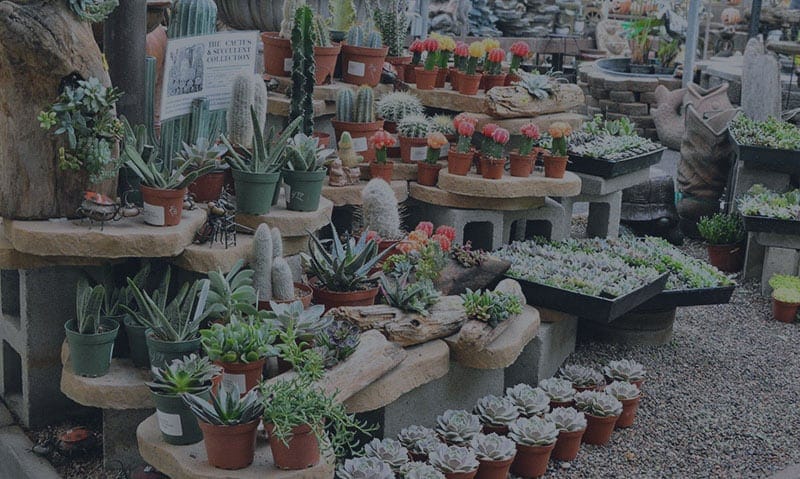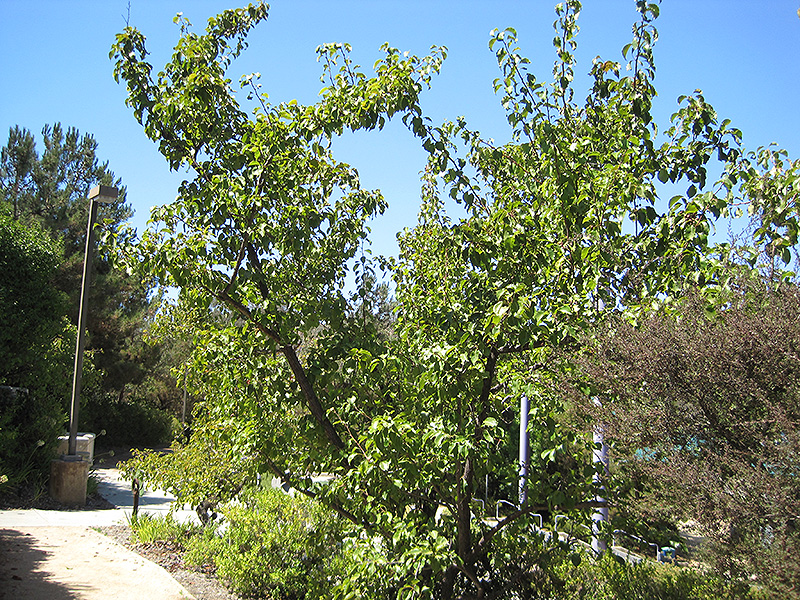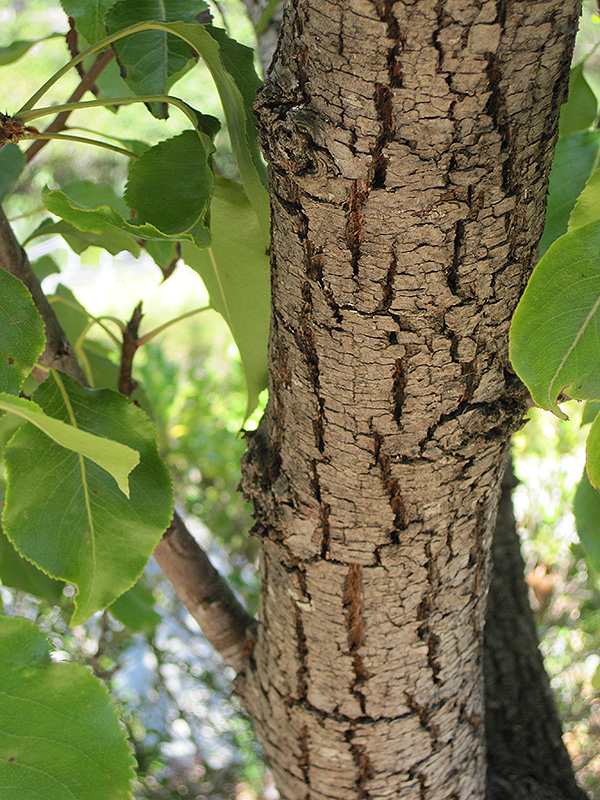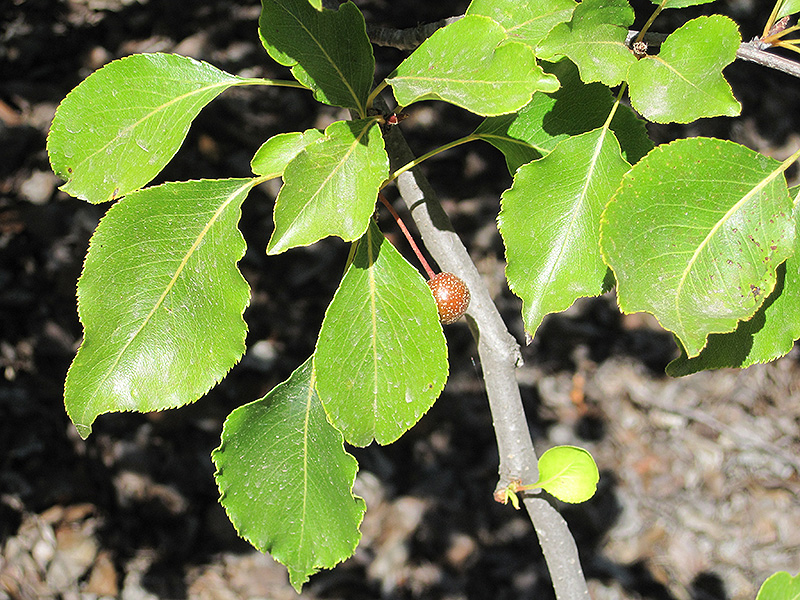Height: 30 feet
Spread: 30 feet
Sunlight:
![]()
Hardiness Zone: 8b
Description:
An evergreen ornamental variety with a broad, sprawling habit of growth; covered in clusters of white flowers in late winter or early spring; flowers have an unpleasant odor; it may drop leaves in the coldest of winters; can be espaliered
Ornamental Features
Evergreen Pear is clothed in stunning clusters of white flowers at the ends of the branches from late winter to early spring. It has emerald green evergreen foliage. The glossy oval leaves remain emerald green throughout the winter.
Landscape Attributes
Evergreen Pear is a multi-stemmed evergreen tree with an upright spreading habit of growth. Its average texture blends into the landscape, but can be balanced by one or two finer or coarser trees or shrubs for an effective composition.
This is a high maintenance tree that will require regular care and upkeep, and should only be pruned after flowering to avoid removing any of the current season's flowers. Gardeners should be aware of the following characteristic(s) that may warrant special consideration;
- Disease
Evergreen Pear is recommended for the following landscape applications;
- Accent
- Shade
Planting & Growing
Evergreen Pear will grow to be about 30 feet tall at maturity, with a spread of 30 feet. It has a low canopy with a typical clearance of 3 feet from the ground, and should not be planted underneath power lines. It grows at a fast rate, and under ideal conditions can be expected to live for 50 years or more.
This tree should only be grown in full sunlight. It prefers to grow in average to moist conditions, and shouldn't be allowed to dry out. It may require supplemental watering during periods of drought or extended heat. It is not particular as to soil type or pH. It is highly tolerant of urban pollution and will even thrive in inner city environments. This species is not originally from North America. It can be propagated by cuttings.




